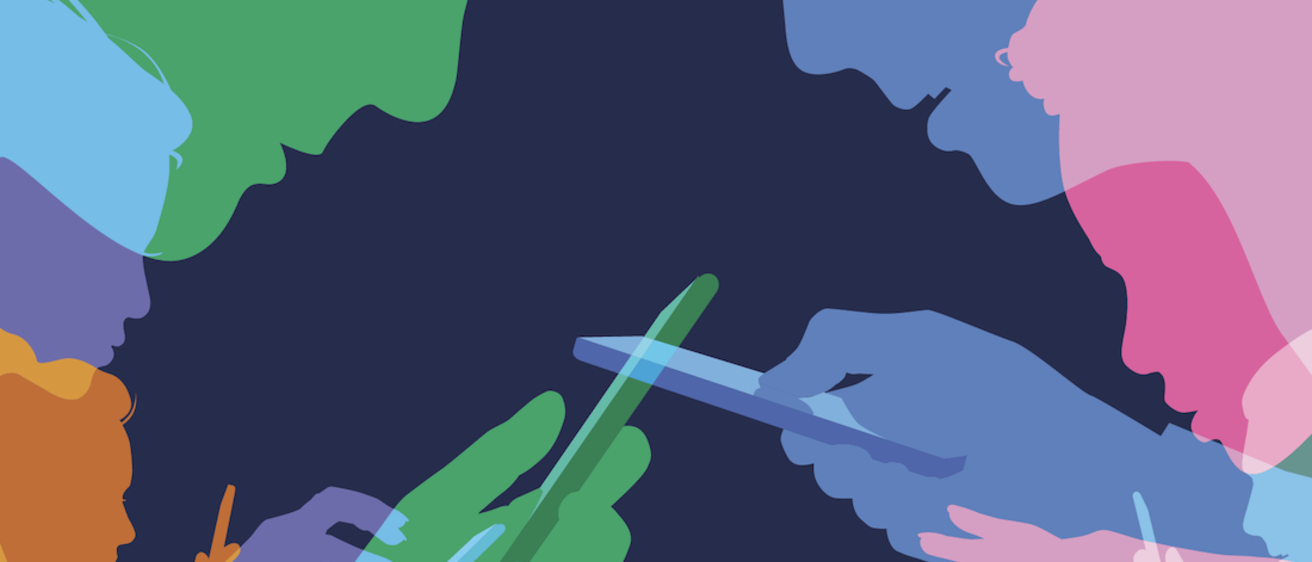Laptops, tablets, smartphones, gaming systems: access to and use of social media is now a significant part of our daily lives. It can connect us, keep us entertained or help us navigate our increasingly complex world. At any given time, people across the world are plugged into their favorite social media outlet, may it be Facebook, Twitter, Instagram, Snapchat or some other new app.
When we add in the recreational aspects of online gaming, one can only wonder how much is too much? Parents are concerned about the impact of their child’s digital media use on his or her mental health and, at the same time, schools are increasingly utilizing tablets for student learning. Our desire to connect to others combined with the 24-7 access to the “information superhighway” can create a new temptation to manage. When does our use of social media go from a pleasant past-time to a compulsion that interferes with our work, family, and overall well-being?
We asked this question to one of our campus leaders, Donald W. Black, professor of psychiatry in the University of Iowa Carver College of Medicine. Dr. Black is a clinical and translational researcher with more than 400 publications. His work has focused on obsessive and compulsive behaviors such as gambling addiction, compulsive shopping, and Internet addiction.
liveWELL: We have been hearing more about the compulsive use of social media and online gaming. Some are even referring to social media addiction. In your opinion, can someone be addicted to social media or gaming?
Dr. Black: Yes, and in many ways this addiction is even harder to break than a drug or alcohol addiction. We’ve seen many patients, mostly adolescents, who are so preoccupied with social media or gaming that they are literally unable to do much else, including attending school or holding a job.
How much is too much?
There is no easy answer, but when the addiction interferes with the individual having a normal life, that is, attending school, having a job, interacting with family and friends (in person, not online) then their time spent in these activities is too much.
What are the warning signs?
Warning signs for social media addiction include the person becoming isolated from family and friends, staying up until all hours on social media, ignoring family, school, or job-related responsibilities, even developing personality changes.
Are there folks who might be more susceptible to these problems?
Anyone who has access to an electronic device with internet access can develop these addictions. The typical age at onset used to be in the twenties, but is now in the teens as people are introduced to social media and the Internet at progressively younger ages.
Are people who find themselves having trouble controlling their use of social media also at risk of developing other problems like compulsive shopping or gambling?
They can. These disorders travel together. In addition, much of today’s shopping and gambling occurs online.
We know that social connectedness plays a large part in well-being. What effect does the use of social media have on the ability to build healthy relationships in real life?
Healthy relationships depend on face-to-face interactions. I’ve been concerned that for many people social connections are virtual only; that is, occur on social media exclusively. I question whether these people truly have healthy social relationships.
What would you consider to be a healthy use of social media platforms?
A healthy use of social media is to enhance existing relationships. These platforms can offer a wonderful way to make announcements, communicate, maintain social ties, etc, and sometimes to meet new people. However, for many this is the only form of interaction.
How would one go about “detoxing”from social media or gaming, and what are the treatment options for someone who has a problem?
For those who feel their social media or gaming is an issue, a break or detox is necessary. This might mean putting the devices away for a period of time, cancelling Internet service, or having someone hold you accountable. It is key that the individual see a need to cut their use, and actively participate in developing face-to-face relationships. If gaming, gambling, or shopping is the problem, the person needs to substitute other meaningful activities as a way to spend their time.
Are you concerned about your social media use or that of someone you care about?
The Employee Assistance Program can help. EAP provides confidential counseling to UI faculty and staff and their families at no cost.
Contact 319-335-2085 to make an appointment.
